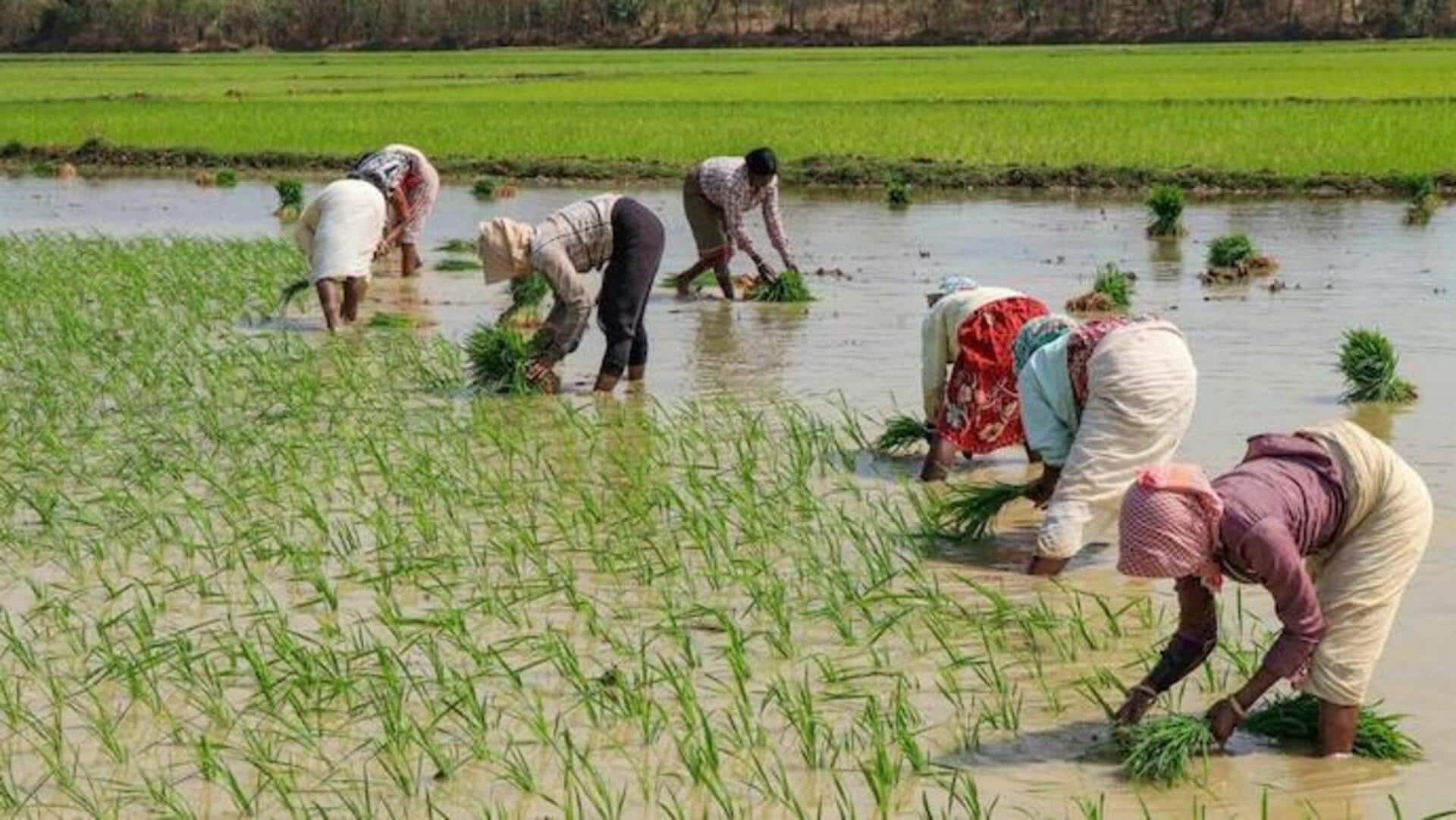
Crop diversification could help recover groundwater lost since 2000: Study
What's the story
A recent study suggests that replacing approximately 40% of rice cultivation with alternative crops, could help restore between 60-100 cubic kilometers of groundwater, lost since the year 2000 in North India. The research was conducted by a team from the Indian Institute of Technology Gandhinagar. They warned that current farming practices heavily reliant on groundwater for rice irrigation, could lead to a further loss of about 13-43 cubic kilometers of groundwater if global warming persists.
Points
What does the study say?
The study, published in the journal Proceedings of the National Academy of Sciences (PNAS) Nexus, suggests a shift from rice cultivation as a potential solution to sustain the rapidly depleting groundwater resource. The researchers found that "replacing 37% area of rice with other crops can recover 61 to 108 cubic kilometers groundwater compared to 13 to 43 cubic kilometers with current cropping pattern under the 1.5-3 degrees Celsius global warming levels."
Regional impact
Pattern change can benefit Punjab, Haryana, UP
The researchers highlighted that altering crop patterns could be particularly beneficial for states like Punjab, Haryana, and Uttar Pradesh in ensuring groundwater sustainability and farmers' profitability. However, they also noted that such changes did not significantly affect groundwater levels in regions with low recovery rates such as Himachal Pradesh, Uttarakhand, and Jharkhand. The study underscores the policy implications of identifying optimal cropping patterns to sustain groundwater in North India's irrigated regions, while also ensuring farmers' profitability and income.
Depletion analysis
Groundwater depletion and crop diversification scenarios
The study revealed that about 300 cubic kilometers of groundwater have been lost between 2002-2022 due to cropping trends in North India, where rice dominates 80% of the cultivated area. The researchers identified parts of Punjab and the Ganga basin as experiencing the world's fastest rates of groundwater depletion. They proposed two scenarios for crop diversification: reducing rice cultivation by 5% or replacing an extra 37% with cereals, pulses, and oilseeds, resulting in total reduction of rice cultivation by 42%.
Potential savings
Crop diversification could have saved significant groundwater
The study found that 45 cubic kilometers of groundwater could have been conserved in the first scenario, and 91 cubic kilometers in the second scenario during 2002-2022, compared to current cropping patterns. In Punjab and UP, the groundwater saved over these two decades could have been around one to four times the maximum holding capacity of India's largest dam, the Indira Sagar. The researchers suggested cereals for UP and oilseeds for West Bengal as alternatives to rice cultivation.